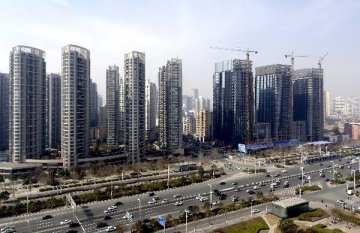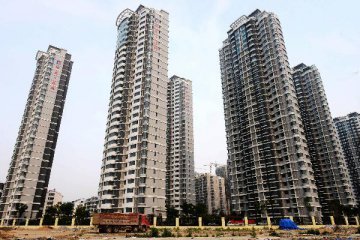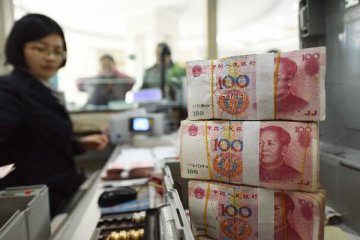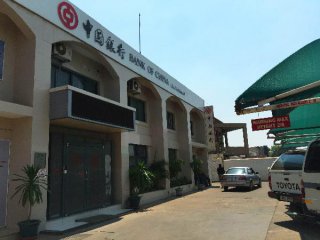
Chinese stimulus is here and the country’s banks are riding the rally that’s come with it. CSI 300 bank stocks are up 16.6% this year, after being spared the worst of 2018’s selloff.
As policy makers in Beijing attempt to arrest the recent economic downturn, commercial lending to the private sector is in focus. Regulators have asked Chinese banks to raise their lending to small firms by 30% this year.
But the financial health of the country’s main lenders depends most on what happens in the precarious property market, leaving would-be investors exposed to one of the thorniest challenges for China’s economic model.
Bet the House
China's banks have become increasingly exposed to the country's noxious property market.
Share of total loans made up by commercial and residential mortgages
During the last decade, the share of the loan books of Bank of China, Agricultural Bank of China and the Industrial & Commercial Bank of China made up of commercial and real estate-mortgage loans have each risen by about 10 percentage points. Lending for real-estate transactions has made up the lion’s share of growth in banks’ outstanding assets.
As a result, it’s what happens in the housing market that drives bank shares.
Research published by two Federal Reserve economists last year showed that between 2010 and 2017, a 1% increase in house prices in a Chinese city that a bank had particularly large exposure to—measured by the proportion of its branches located there—was associated with a 1.64% rise in that bank’s share price on average.
Near term, the good news is that Chinese house prices were already ticking up before the recent stimulus efforts got under way. In the 12 months to January, price growth in China’s cities rose at its sharpest pace since mid-2017.
Longer term, there’s little to be optimistic about. Beijing will do its best to avoid property prices falling, given the importance of tax revenue from land sales and the fact that property is the main savings vehicle for ordinary citizens. But policy makers will also want to prevent further big price increases, with homeownership currently out of reach for millions of young workers.
The composition of commercial lending is important for China’s economy, which needs to find a way to redirect credit from its megalithic state-owned industrial firms to private entrepreneurship. But the immediate and crucial factor for the country’s large banks lies elsewhere.
Rather than be trapped in the toxic triangle of politics, finance and property, investors should instead ask whether they want to own Chinese bank stocks at all.
Source: The Wall Street Journal
























Latest comments